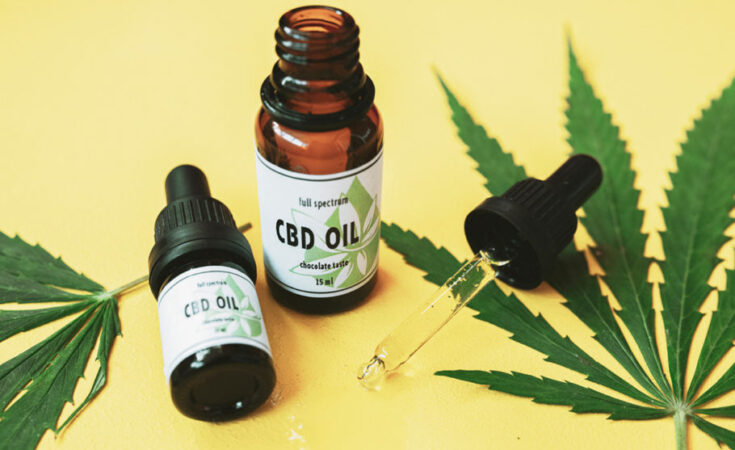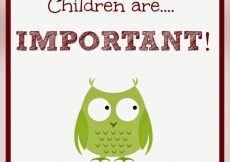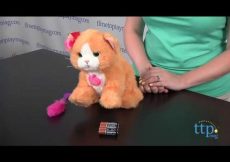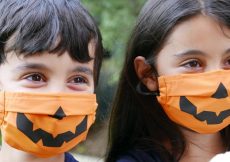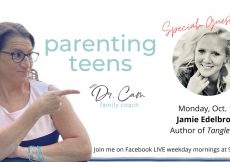CBD or cannabidiol is a compound found in the hemp and marijuana plants of the cannabis sativa family (1). The oil is extracted using different techniques, such as carbon dioxide extraction, ethanol extraction, and hydrocarbon extraction (2). After extraction, the oil is refined and made commercially available as tinctures, capsules, topicals, chewable gummies, drinks, etc.
Over the past few years, CBD oil’s use in treating several ailments, such as chronic pain, stress, insomnia, and nausea/vomiting, has become popular. However, knowing that CBD comes from marijuana, which makes people feel “high,” parents often speculate if CBD oil is safe for children.
This post provides valuable insights into CBD oil’s safety for children, its benefits, age-appropriate dosage, and potential side effects and risks involved with its consumption.
Is CBD Oil Safe For Children?
There’s no scientific evidence to prove the safety and efficacy of CBD oil for children. However, one CBD product, namely Greenwich Biosciences’ Epidiolex, has been approved for use as a part of a regulated medication to treat epilepsy in children by the US FDA (3). This prescription drug contains a purified form of CBD that helps treat seizures in children that occur in rare and severe epilepsy forms, such as Lennox-Gastaut syndrome and Dravet syndrome (4).
Since these epilepsy forms do not respond to anti-seizure medications, CBD use becomes crucial. However, remember that using CBD oil as a standalone medication to treat epilepsy in children isn’t well-researched. Thus, if you want to use CBD oil for treating epilepsy or any other ailment in your child, consult a pediatrician.
Note: CBD is often confused with THC (tetrahydrocannabinol), another cannabinoid found in hemp and marijuana. THC is a psychoactive compound that makes a person feel “high” and causes addiction and psychosis. However, CBD doesn’t have these effects and affects separate brain regions than THC (5).
Uses Of CBD Oil For Children
Apart from treating epilepsy, the FDA doesn’t approve CBD oil’s use to treat any ailment in children. However, studies suggest that CBD oil may be an effective treatment for the treatment of several ailments.
- Anxiety: Some recent studies show that CBD oil use may help reduce anxiety (6) (7). Preclinical evidence from animal studies demonstrates that CBD oil use can reduce anxiety associated with multiple disorders, such as post-traumatic stress disorder (PTSD), generalized stress disorder, and social anxiety disorder (8 ). However, there’s a need for further study to make any recommendations for children.
- Autism: A 2019 study on 188 autism spectrum disorder (ASD) patients showed that the use of cannabis oil containing 30 percent CBD and 1.5 percent THC appears to be a “well-tolerated, safe, and effective option to relieve symptoms associated with ASD” (9). Another study involving 60 children also showed some promising results (8 ). However, these results aren’t sufficient for clinical validation as the research samples are quite small.
- Attention deficit hyperactivity disorder (ADHD): A systematic review conducted in 2020 highlighted that CBD could help alleviate symptoms of ADHD (10). However, currently, no targeted research studies are available to support the use of CBD oil for treating or managing ADHD in children.
- Multiple sclerosis (MS): A 2019 study by Thorsten Rudroff and Jacob Sosnoff suggests that CBD use may be associated with less pain and spasticity, ultimately leading to improved mobility and proper sleep (11). Yet, more research is warranted to derive any conclusions for CBD oil use for MS treatment in children.
Side Effects Associated With CBD Oil Use
CBD oil use for children isn’t well-researched, and its unguided use may cause certain side effects, such as
- Gastrointestinal disturbances: Upset stomach and abdominal pain are common side effects of CBD oil use in sensitive individuals. So, always consult a doctor or alternative medicine expert before using CBD oil for children.
- Toxicity: If CBD oil isn’t used under guidance, there’s a potential risk of overdose and toxicity. Therefore, it’s essential to use CBD oil only after consulting an expert. Some of the symptoms you may see in CBD toxicity are severe nausea or vomiting, high blood pressure, anxiety, paranoia, rapid heart rate, and hallucinations (12).
- Possible drug interaction: CBD is a bioactive compound that can interact with other chemicals and compounds in the medications. Since CBD affects the brain and the central nervous system, antidepressants and antipsychotics are the most obvious drugs that can interact with CBD.
Some other drugs that can interact with CBD are blood thinners and thyroid and heart medications (13). Therefore, if your child is on any medication, consult your doctor before using CBD for any purpose.
Besides these, CBD oil can also cause headaches, drowsiness, dry mouth, and low blood pressure (14).
Note: Milk and foods containing high amounts of fats can increase the absorption of CBD in the body, thus increasing the effects and side effects of CBD on an individual (12).
Possible Risks Associated With CBD Oil Use In Children
Baring Epidiolex, which contains CBD, CBD oil isn’t regulated by the US FDA, making its use in children and teens risky as (5) (8 )
- The ingredients of CBD oil can’t be determined accurately, meaning the products can have ingredients that aren’t mentioned on the label. For instance, several products that claim to contain only CBD may also contain high doses of THC, a psychoactive compound.
- CBD oil’s quality can’t be ascertained, as there are chances that the oil may be contaminated with microorganisms, pesticides, and heavy metals. Consuming contaminated CBD oil can cause severe effects in sensitive individuals.
- The efficacy and safety of CBD oil in children and teens are unclear, and research on this subject is still in its early stages. Also, existing studies have been either done on animals or human adults and not on pediatric patients. Further, the studies that involve children have small sample sizes.
- The dosage guidelines aren’t clear, except for CBD used in the drug Epidiolex to treat Epilepsy. Thus, using CBD oil at home is tricky, especially when you aren’t aware of how much CBD oil you can administer to a child to get the desired effect. Also, there is no way to know which mode of use is best and how much CBD would be absorbed in the body based on the method of administration.
Besides these, the legality of the use of CBD oil varies from one country to another and state to state. For instance, according to the US FDA, THC or CBD can’t be sold legally as a dietary supplement, food, or therapeutic product (4). Instead, it can only be included in cosmetics when its THC content is less than 0.3 percent (14). So, check your state’s legal requirements for CBD oil purchase and use before you make any purchases.
How To Choose CBD Oil?
Proper selection of a CBD oil brand can be tricky as it’s manufactured by several companies globally. So, here are some tips that could help (15).
- Buy the product from a trusted manufacturer and seller. It will ensure the product you’re buying is of good quality and is not contaminated. Some manufacturers may dilute CBD isolate with hemp seed oil, which can make the product comparatively ineffective as they lack the balance of beneficial components found in broad-spectrum CBD oil (2).
- Read the product label carefully and determine the
-
- Oil source: The oil should be extracted from hemp or marijuana. Typically, hemp has a significantly less amount of THC when compared to marijuana. THC is a psychoactive chemical that can create dependence over long-term use. So, ensure you buy CBD oil extracted from hemp plants cultivated by domestic farmers. Domestic hemp is typically free of toxins and pesticides.
- Extraction method: The extraction method indicates how the oil has been extracted from the hemp plant. Typically, CBD oil is extracted using carbon dioxide (CO2) extraction or by using solvents such as ethanol, propane, and butane. Out of these, propane and butane extraction isn’t considered safe as these solvents are toxic and hazardous for children. On the other hand, ethanol and CO2 extraction techniques are safe and potent as they leave no harmful chemicals in the oil.
- Chemical composition: It signifies whether the oil is full-spectrum or isolate. Full-spectrum CBD oil will contain several phytonutrients, such as flavonoids, terpenes, and trace amounts of THC. If THC’s presence concerns you, look for CBD isolates, which are the pure form of CBD oil.
But, while you make that choice, consult an expert as concentrated CBD has high amounts of CBD per serving, increasing the chances of overdose.
-
- Product certification: Ensure the product has been certified by a reputable third-party testing lab or organization. The lab will test the oil quality and certify that the oil is true to its claim about its chemical composition. It’s best to buy oil that has testing information attached.
CBD oil for children and adults is the same. However, since children weigh less and are comparatively sensitive, using CBD oil with lower potency is advisable.
CBD Oil Dosage For Children
The appropriate dosage of CBD oil for children depends on their body weight, metabolism, medical condition, overall health, and intent of use. For instance, the US FDA has approved the daily oral use of 25mg per kg of body weight for Epidiolex, the prescription drug that contains CBD (14). Its use is approved for children aged one and above.
However, this dosage may or may not be suitable for every child. So, consult a doctor or alternative medicine expert to determine the appropriate CBD oil dosage and suitable mode of use for a child.
CBD oil use as a part of the prescription drug Epidiolex is approved for children by the FDA. Barring that, CBD oil use to treat or manage any ailment in children isn’t regulated. So, consult your healthcare provider or an alternative medicine expert before using CDB oil for children, as CBD oil available over-the-counter or online can contain high levels of THC and other toxins that can adversely affect your child’s health.
References:
MomJunction’s articles are written after analyzing the research works of expert authors and institutions. Our references consist of resources established by authorities in their respective fields. You can learn more about the authenticity of the information we present in our editorial policy.

